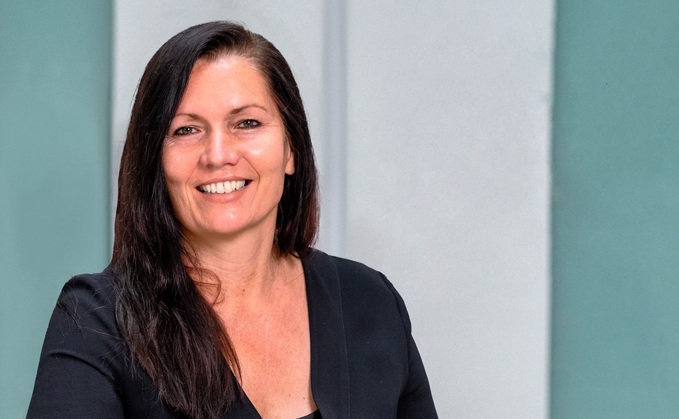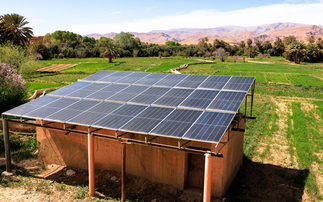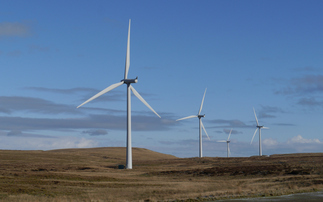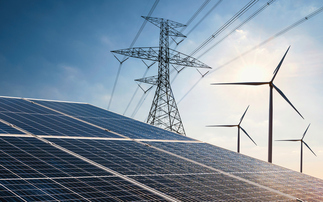
Credit: SSE
Partner Insight: SSE Energy Solutions' head of digital services Eunice Mabey explains how using energy more flexibly can save on bills and emissions
There are plenty of flexible solutions out there for saving on energy bills. A recent report by energy analysts Cornwall Insight suggested national electricity costs could be cut by as much as £4.6bn by 2030 if the likes of smart meters, time-of-use tariffs, solar panels, and battery storage are widely adopted.
However, there's a new player in this space.
The Demand Flexibility Service (DFS) was introduced here in the UK for the first-time last winter delivering 3,300 megawatt hours of electricity reduction through consumer and business demand flexibility.
Earlier this year, the National Grid (NG) confirmed that 1.6 million homes and businesses had participated in the scheme. Electricity saved in Southern England, the East of England, and the East Midlands - the three most engaged regions - could power some 3.3 million homes. Overall, the data shows that the Demand Flexibility Service delivered enough electricity to power over 10 million homes, roughly 35 per cent of the homes in the UK.
Clearly, the trial demonstrated that demand flexibility can be provided at national scale.
The NG will publish their Winter Outlook Report in the coming weeks but the indicative range for the threshold beyond which competitive market conditions such as DFS are introduced is when the electricity supply or demand reaches between two and three gigawatts.
Suppliers, including SSE, have been involved in a consultation with National Grid on the implementation and operation of DFS this winter, but what is abundantly clear is that more needs to be done to raise awareness of the benefits of the system.
Signing up to DFS creates more of an opportunity for us to think about our behaviours towards our energy usage, become more flexible about the way we consume electricity and be rewarded for it.
What is DFS?
DFS allows customers to increase or decrease electricity consumption in response to signals from the grid operator or energy market.
As renewable energy sources are unpredictable in nature DFS can help balance the grid by aligning electricity consumption with the availability of renewable energy.
Businesses are, in turn, then remunerated for the volume of demand they have reduced based on a baseline measure. National Grid has guaranteed a price of £3,000 per megawatt hour to incentivise participation in the service.
During a DFS 'event' (National Grid has indicated there will be between 10 and 20 events this winter, some test, and some real events) the baseline is used to assess how energy usage during an event compares to a normal level of a business's demand on a similar day.
Energy users have different ways of indicating their intent to participate in a DFS event, either setting their default status to 'opt-in', or opting-in or out on an event by event basis.
DFS is most likely to be needed on working days, particularly Mondays and Tuesdays, and peak periods of demand typically occur between 4pm and 6pm.
Why should you sign up?
Put simply, it'll save you money on electricity bills, potentially give you some cash back and boost your green energy credentials. That's a win-win. There's increasing evidence that companies who introduce measures to decrease their carbon footprint are seen in a more favourable light by prospective customers.
Of course, there are 'wins' for everyone with DFS. It means grid operators can manage supply-demand fluctuations which reduces the need for peak power generation. Furthermore, flexible energy solutions will lower the running costs of the electricity grid, reduce the need to invest in its expansion and build resilience. That means yet more savings for customers.
By optimising the use of renewable energy, we are all playing a part in the transition to net zero.
How do I get involved?
With SSE it is very easy.
We will need access to up to 12 months of previous meter data to satisfy qualification criteria around baselining and you need to agree to allow SSE to use your data as it may fall under GDPR. You also need to be able to respond to and carry out an event instruction for at least 30 minutes.
You are not obliged to stay in the service, meaning a level of flexibility to opt in or out as business operations dictate, and there are no penalties for over or under delivery.
We will oversee and administer the registration process and the calculation of your volumes, and we will allocate a dedicated account manager who would be on hand to answer any questions along the way.
The service goes live on the 30 October, but businesses can still sign up after that date.
At SSE we see real potential in the DFS, and we're keen to make customers (and you don't need to be an SSE customer) aware of how we can work with them to maximise its cost saving and sustainability benefits.
Eunice Mabey is head of digital services at SSE Energy Solutions.
This article was sponsored by SSE. For more information email [email protected]







